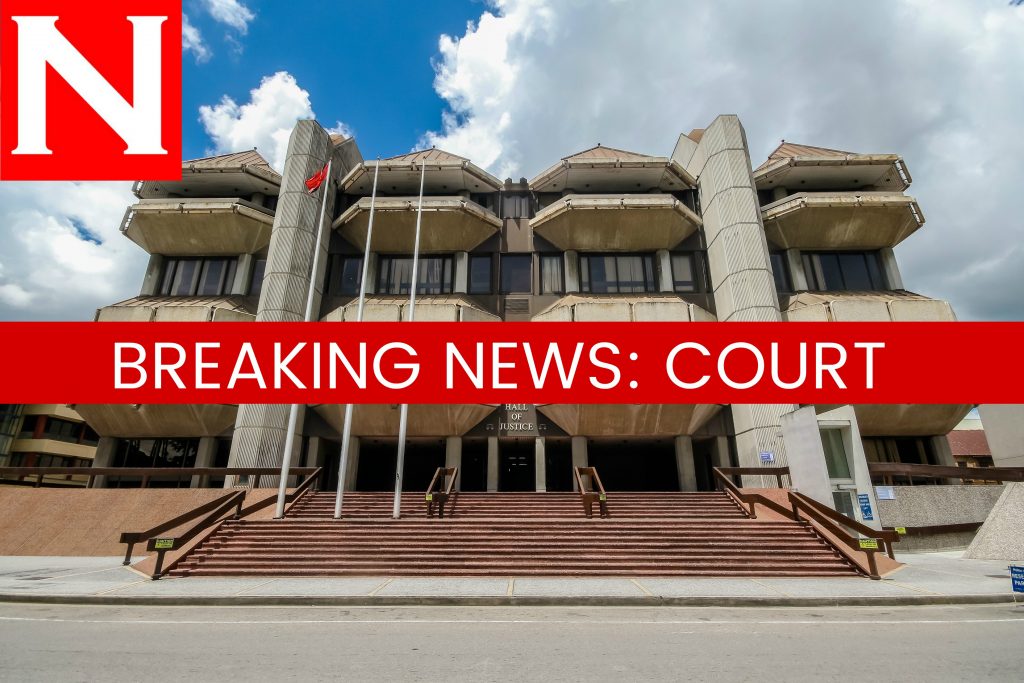Inmate seeks $1billion for bad case

DEATH ROW inmate Mukesh Chandradath, who is seeking $1 billion in compensation for what he says is malicious prosecution and false imprisonment, has condemned his conviction and sentence and says he should be allowed to go free.
Chandradath has advanced a series of complaints against the police who charged him for murder in 1999, the prosecution, his defence attorneys at both his trials and the preliminary inquiry, and Chief Justice Ivor Archie, who he alleged withheld from former president Anthony Carmona that Justices of Appeal Prakash Moosai – who conducted the second trial – and Mark Mohammed – who was the Director of Public Prosecution at the time he was charged – acted corruptly and should not have been appointed to the appellate court.
He also claimed the prison authorities and his previous attorney conspired to make him blind so that he could not advance his grounds of appeal.
At a previous hearing, in which he detailed his medical problems, which included the need for cataract surgery and a growth to his left testicle, Chandradath opted to represent himself at his appeal. Today, he maintained his position and his grounds of appeal were taken from countless letters he wrote to the court, dating back 2011, to support his appeal, as well as excerpts from legal texts and cases.
His appeal was heard by Justices Alice Yorke-Soo Hon, Gregory Smith and Rajendra Narine and each of his 12 complaints was meticulously outlined by Soo Hon, who also gave him an opportunity to further explain himself.
Chandradath was convicted of the 1999 murders of an elderly couple, Selwyn Grant, 65 and his wife Ursula Innis, 70, of Allen Drive, Syne Village, Penal.
Innis’s decomposing, headless body was found in the bathtub of the bathroom by her grandson on September 16, 1999. The next day her head was found in a bag floating inside a water tank. Grant’s body, in an advanced state of decomposition, was found under an abandoned tank in the yard of the house. His head was in a bag secured with wire.
Chandradath was convicted in 2011, at his second trial.
At the appeal, he complained of police tampering with evidence, including a post mortem certificate prepared by then pathologist Dr. Ramnath Chandulal. He said because the certificate was tampered with, it could not have been relied on by the prosecution and without it, the State would not have been able to prove cause of death.
As a result, he submitted, a charge of murder could not be made out and this ought to have been considered by the then DPP, who filed a defective indictment against him.
He also complained of evidence that had been tampered with by the police being withheld at his trial, and that the death sentence was defective because his real name of Mukesh Ramkissoon was not read out.
He also accused the police of falsifying and concealing evidence, fabricating an alleged confession statement, and called on the court to deal with his recalcitrant trial lawyers who “deliberately failed to comply” with his instructions which, he said, led to an unfair trial and conviction.
Hearing of the appeal has been adjourned to February 26, to give the State, represented by Assistant DPP Angelica Teelucksingh-Ramoutar and special prosecutor Travers Sinanan, an opportunity to formulate its response to Chandradath’s complaints.


Comments
"Inmate seeks $1billion for bad case"